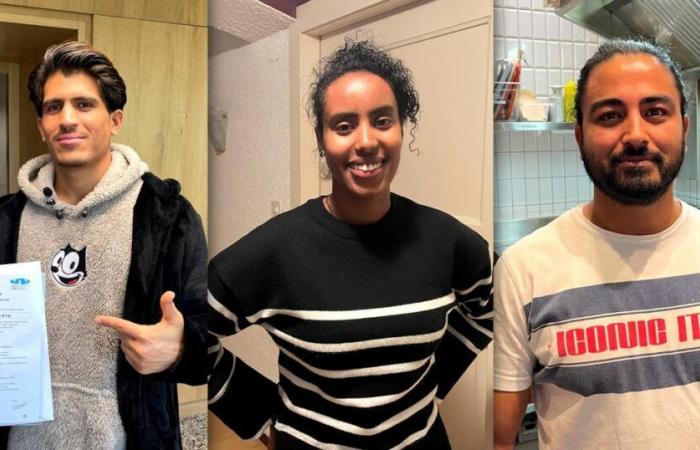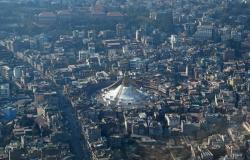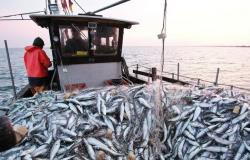
Throughout the week, La Matinale de la RTS offered a series on the integration of young migrants. Whether they come from civil society, institutions or the business world, initiatives are multiplying in this area in French-speaking Switzerland. Meetings.
6-month internships in companies
The Friborg Federation of Entrepreneurs has set up a 6-month internship in construction companies for young migrants.
Sayed Khalili, 20, comes from Afghanistan. A little shy, he had to take it upon himself to address the audience when the internship certificates were handed out: “This training gave me confidence in my abilities. Thank you to those who believed in me”, he thanks, addressing his teachers in particular.
“There is a shortage of labor in our professions. And given that these people have a difficult background, they want it. That’s something great for us,” underlines David Valterio, director of the Friborg Federation of Entrepreneurs.
>> Listen to the report with Sayed:
Training to improve integration
Currently, more than one in two young migrants is receiving training, five years after their arrival in Switzerland. This is the result of the strategy put in place by the Confederation and the cantons to improve the integration of young migrants, particularly through pre-apprenticeship.
Bsrat, a young Eritrean who arrived in Valais at the age of 20, went through this sector. She is completing her apprenticeship as a community care assistant in a home for the elderly in Chamoson. “I love working here. These people bring us happiness and sharing,” she says.
“Many people from distant migration are committed, motivated people who want to acquire professional status in Switzerland… Without them, I believe we would close the establishment,” notes Philippe Vouillamoz, the director of this EMS.
>> Listen to the report with Bsrat:
The need for youth sponsorship
The integration of young migrants in Switzerland is facilitated by sponsorship initiatives by associations. In the canton of Vaud, for example, the Nela association found a godmother for a young refugee from Burundi, who arrived in Switzerland a little over two years ago.
“What was the most difficult was the solitude. And staying without doing anything, I who have always done things in my life, it was very difficult for me,” says Frank*, who wanted to keep the anonymity.
But a meeting changed his life a little in Switzerland 9 months ago: the one with Patrizia, his godmother, a retired nurse, mother of two grown children. “We see each other every week. I take him to the cinema, to the theater, to integrate him into this culture. And little by little, I started to help him write application letters to find internship places or learning,” explains Patrizia.
>> Listen to the report with Frank* and his godmother:
Recognition of university diplomas
Some young migrants arrive in Switzerland with diplomas, but these are rarely recognized. To compensate for this, the University of Geneva is innovating by offering a trial semester to young migrants who wish to access academic training.
Hadis*, a young Afghan who arrived in Switzerland at the age of 18, is currently taking advantage of it. “I started a bachelor’s degree in computer science studies at a university in Kabul, but I was only able to study for five months before having to leave my country. When I arrived here, my diploma was not recognized. “
She therefore followed the program at the University of Geneva, with the threat of an ax at the end. “We are required to obtain at least 18 credits for the first semester. Afterwards, if we succeed, we can enter the university as a regular student, otherwise, we cannot enter. As a result, I have a only chance to succeed…”
>> Listen to the report with Hadis* and her godmother:
The importance of permits
“Sometimes, I worked 7 days a week, and at the end of the month, I couldn’t get by. I couldn’t do anything, because I had an F license. They took advantage of my situation, because I wanted to be independent and no longer be on social assistance”, testifies Atiq, a young 26-year-old Afghan, who now works in catering in Geneva.
The young man turned to the Yojoa Association, which believes that “young people from migrant backgrounds bring solutions rather than problems”. It was she who found him his new job, which ultimately allowed him to exchange his provisional refugee permit for a B permit, the establishment permit.
“Before, with the F license, I couldn’t have housing, or even a telephone subscription. So, now I’m happy, I can move forward in my life,” he smiles.
>> Listen to the report with Atiq:
Radio reports: Pierre Bavaud
Web adaptation: Victorian Kissling
*Identified first names




